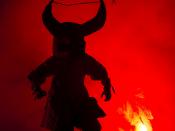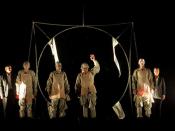Treatment of Women in Homeric Literature In Homeric literature, the most significant item of a man's Ikos is a woman. Within Homer's Iliad, Helen of Troy was sought after as a beautiful woman to have and to own; consequently, the desire to have possession of Helen lead to a war between man and man, country and country. While Homer does give evidence of the way married, mortal women are perceived as objects to earn and, in a sense, conquer as property in the Iliad, overwhelmingly that is not the message of the Odyssey. However, the treatment of women is still substantial subject matter expressed within the poem. Homer gives evidence of the Greek's culture and their ideas and treatment of married and single, mortal and godlike females. Homer shows that breed and marital status are significant factors in the treatment of women.
Married women are targets of men's desire.
Penelope, the only married woman within the poem, is surrounded by suitors that have seized her home and all of her husband's property. Although the suitors believe Odysseus is dead, these men are knowingly trying to force a unwilling woman into being unfaithful. These suitors have no desire to go after a single woman; what these men are after is all of Odysseus's Ikos, which includes his wife. "They feed on another's goodsâ¦if [the suitors] caught sight of [Odysseus] homeâ¦they'd all pray to be faster on their feet than richer in bars of gold and heavy robes" (1 l. 187-92). This is the second Homeric installment (the first was the Iliad) where a married woman was courted by suitors. There are no signs of single women being courted in the same manner as married women in these Homeric epics. Despite such difficulties of being overtaken,


